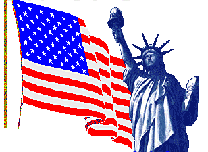|
More information about USA at www.ClearVisionBibleStudies.Com
George Mason
George Mason (1725-1792), was a famous American Revolutionary statesman and delegate from Virginia to the Constitutional Convention. He was a member of the Virginia House of Burgesses, a lawyer, judge, political philosopher and planter. He was the richest man in Virginia, owning 15,000 acres in Virginia and 80,000 acres in the Ohio area. George Mason was the author of the Virginia Constitution and the Virginia Bill of Rights. He was a delegate to the Constitutional Convention of the United States, but refused to sign the Constitution as it did not sufficiently limit the government's power from infringing on the rights of citizens. George Mason disapproved strongly of the slave trade and mortally hated paper money. He disliked the idea of a strong federal government as he feared it would usurp the sovereignty of the individual states. He is called the "Father of the Bill of Rights," as he insisted the Congress add the Bill of Rights (the first ten amendments), to the Constitution. His influence has gone worldwide, as virtually all succeeding constitutions have incorporated the pattern he set forth. The first ten amendments to the United States Constitution, limiting the power of the government, are practically his and may be found expressed in the Virginia Bill of Rights which he wrote: Virginia Bill of Rights June 12, 1776: "Article XVI That Religion, or the Duty which we owe our Creator, and the Manner of discharging it, can be directed only by Reason and Convictions, not by Force or Violence; and therefore all Men are equally entitled to the free exercise of Religion, according to the Dictates of Conscience; and that it is the mutual Duty of all to practice Christian Forbearance, Love, and Charity towards each other." - June 12, 1776, Virginia Bill of Rights. Catherine Millard, The Rewriting of America's History (Camp Hill, PA: Horizon House Publishers, 1991), p. 145. "Our Christian Heritage," Letter from Plymouth Rock (Marlborough, NH: The Plymouth Rock Foundation), p. 3. George Mason, stated before the General Court of Virginia: "The laws of nature are the laws of God, whose authority can be superseded by no power on earth." - In an address before the General Court of Virginia. Russ Walton, Biblical Principles of Importance to Godly Christians (Marlborough, NH: The Plymouth Rock Foundation, 1984), p. 358. David Barton, The Myth of Separation (Aledo, TX: WallBuilder Press, 1991), p. 200. "It was this phrase, of George Mason's which later became incorporated in the Declaration of Independence as 'the laws of nature and nature's God.'" - Russ Walton, Biblical Principles of Importance to Godly Christians (Marlborough, NH: The Plymouth Rock Foundation, 1984), p. 358. David Barton, The Myth of Separation (Aledo, TX: WallBuilder Press, 1991), p. 200. In his Last Will and Testament, George Mason wrote: "My soul, I resign into the hands of my Almighty Creator, whose tender mercies are over all His works who hateth nothing that He hath made and to the Justice and Wisdom of whose dispensation I willing and cheerfully submit, humbly hoping from His unbounded mercy and benevolence, through the merits of my blessed Savior, a remission of my sins." - In his Last Will and Testament. Robert C. Mason, George Mason of Virginia - (Citizen, Statesman and Philosopher) (New York: Oscar Aurelius Morgnor, An address Commemorative of the launching of the S.S. Gunston Hall at Alexandria, Virginia, January, 1919), p. 10. Catherine Millard, The Rewriting of America's History (Camp Hill, PA: Horizon House Publishers, 1991), p. 151-152.
|
